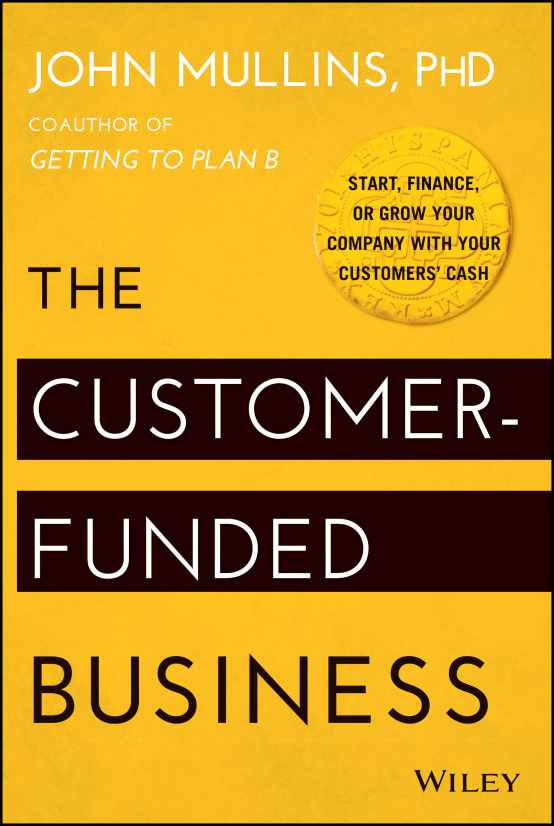Books by John Mullins

the customer-funded business: start, finance, or grow your company with your customers' cash
People starting ambitious new ventures, whether inside large companies or in their garages, often assume that the first thing they must do is raise some capital to fund their start-up. But there are significant drawbacks to raising capital too early Raising capital demands a lot of time and energy, distracting the founders from building the actual business. Raising capital too early means pitching the (still unverified) merit of the business idea to potential investors, rather than proving its merit among customers in the marketplace. Raising capital early leaves the founders with a lower ownership stake than might otherwise be the case, since most risks and unknowns are still unresolved. Raising capital early brings lots of baggage: tough terms and conditions that investors rightly require to offset the risks they take by backing an early stage venture. Raising capital is almost always very hard, and may not always be possible, particularly in difficult economic conditions! A smarter approach, explained in this book, is to use customer money to fund a new business or product. Drawing on the detailed stories of more than 20 young companies from around the world companies unknown and well-known, including both successes and failures the book identifies five different ways by which such customer funded business models can be built: Matchmaker models, Pay-In-Advance models, Subscription Models, Scarcity-based models, Service-to-Product models. What is most striking about these models is that each of them gives the company what accountants call negative working capital: that is, the company has the customers cash in hand before having to produce or pay for the goods or services it has sold. In exploring these models, we found perhaps surprisingly that most of them work for selling both goods and services. Further, we observed that, in almost every case, there was a queue of VCs lined up, eager to invest. Contrast that with the length of the typical queue that an early stage entrepreneur finds at his door: nil.

Loading the next 20 Records..…